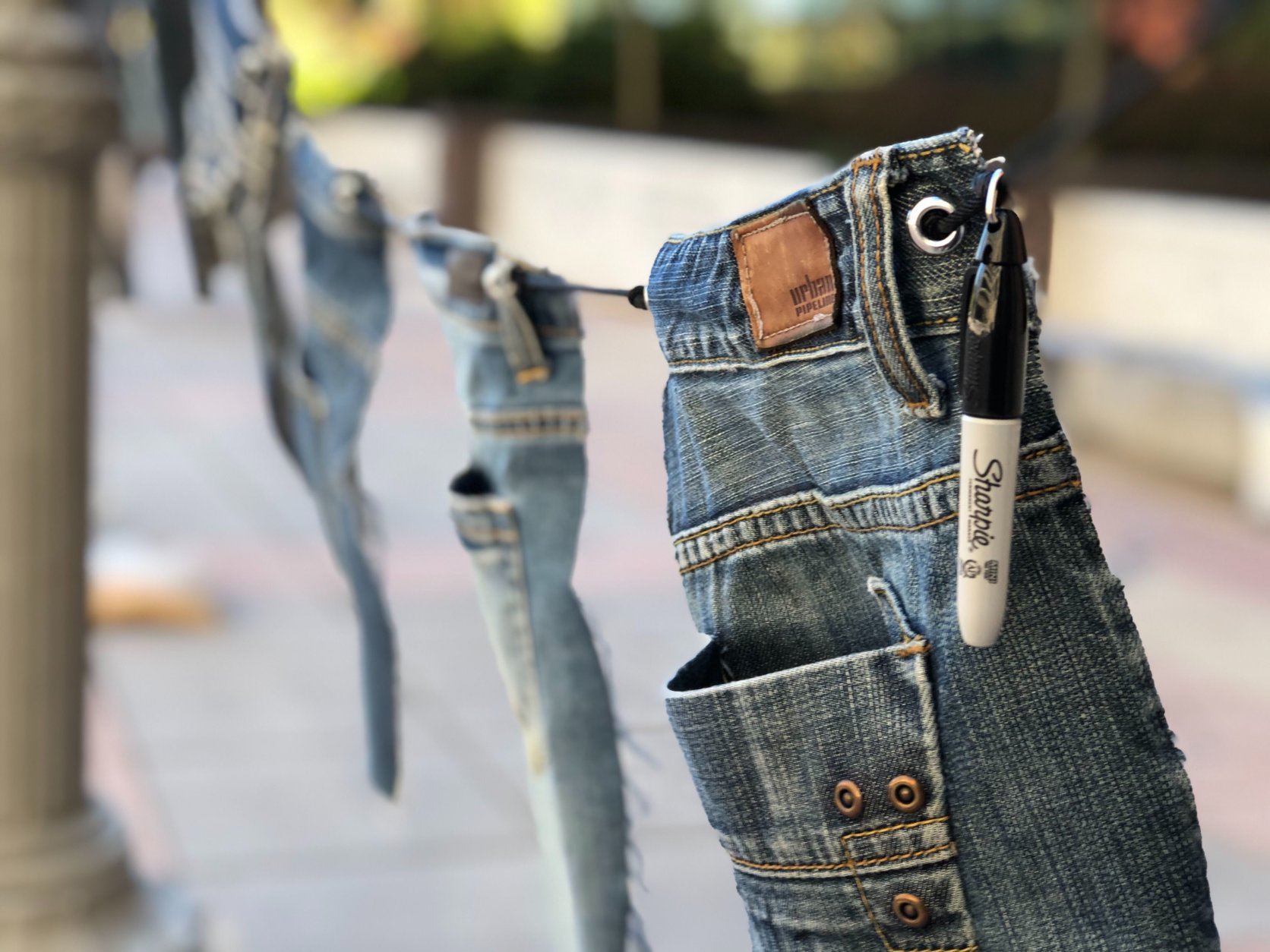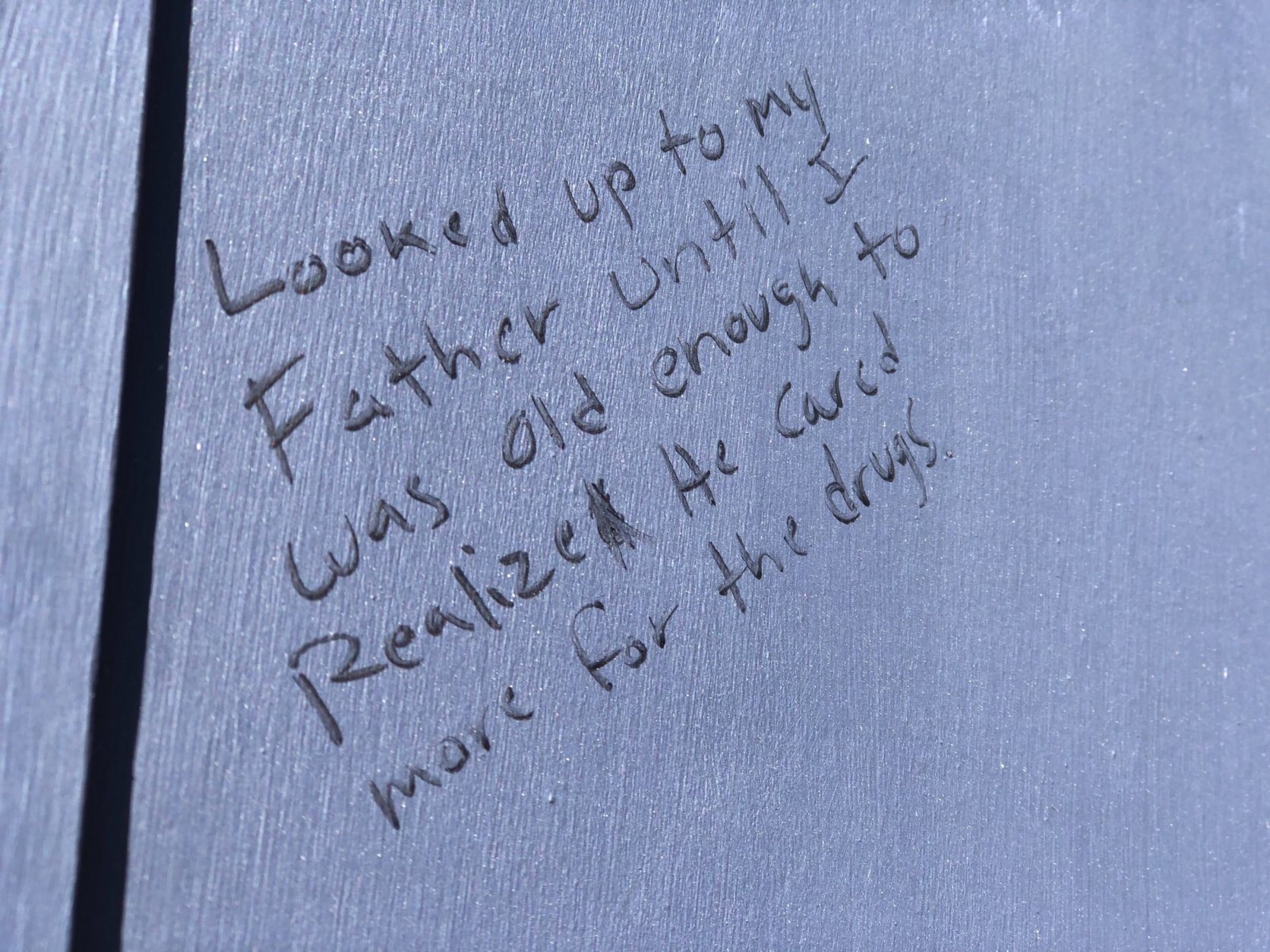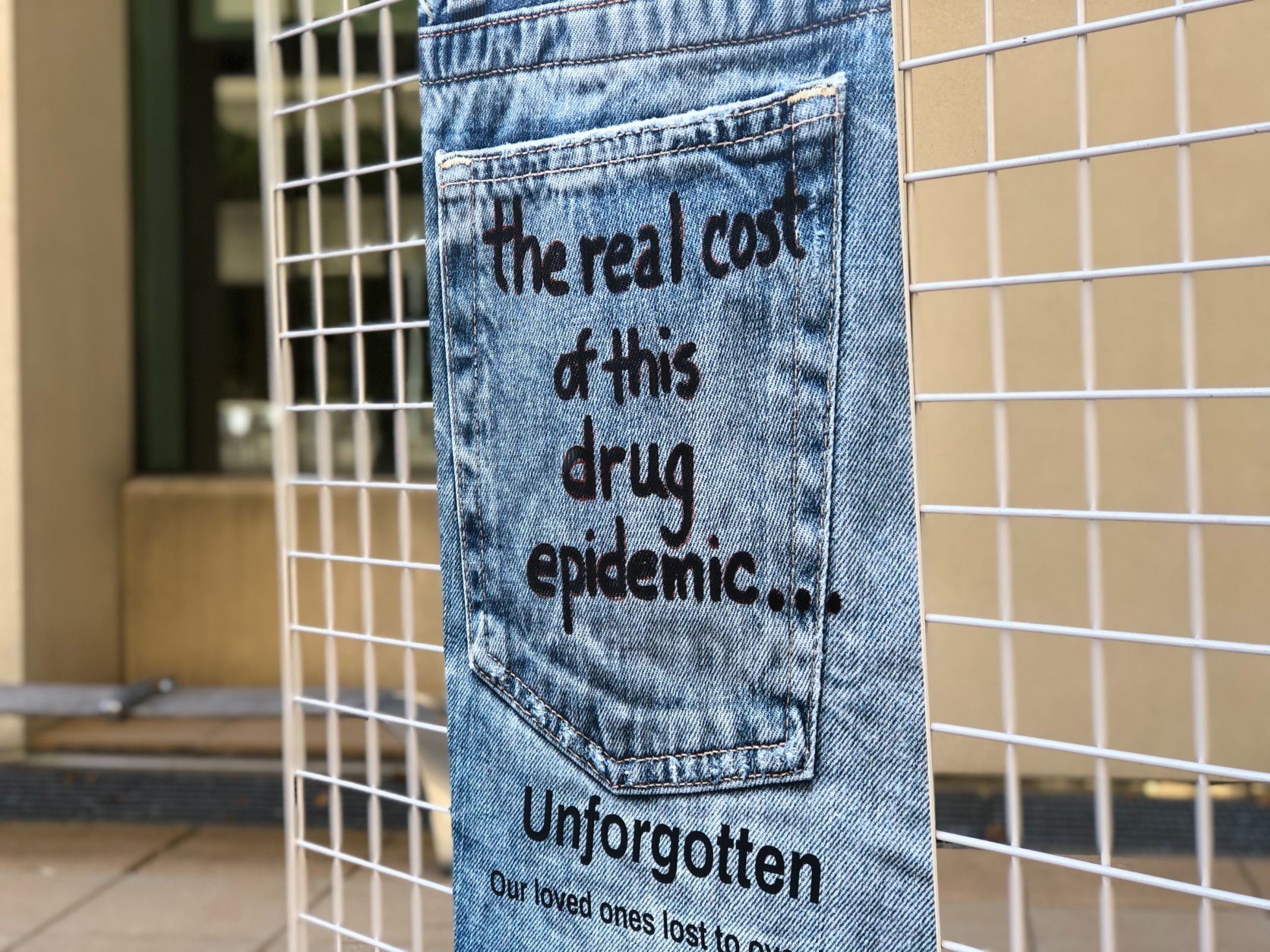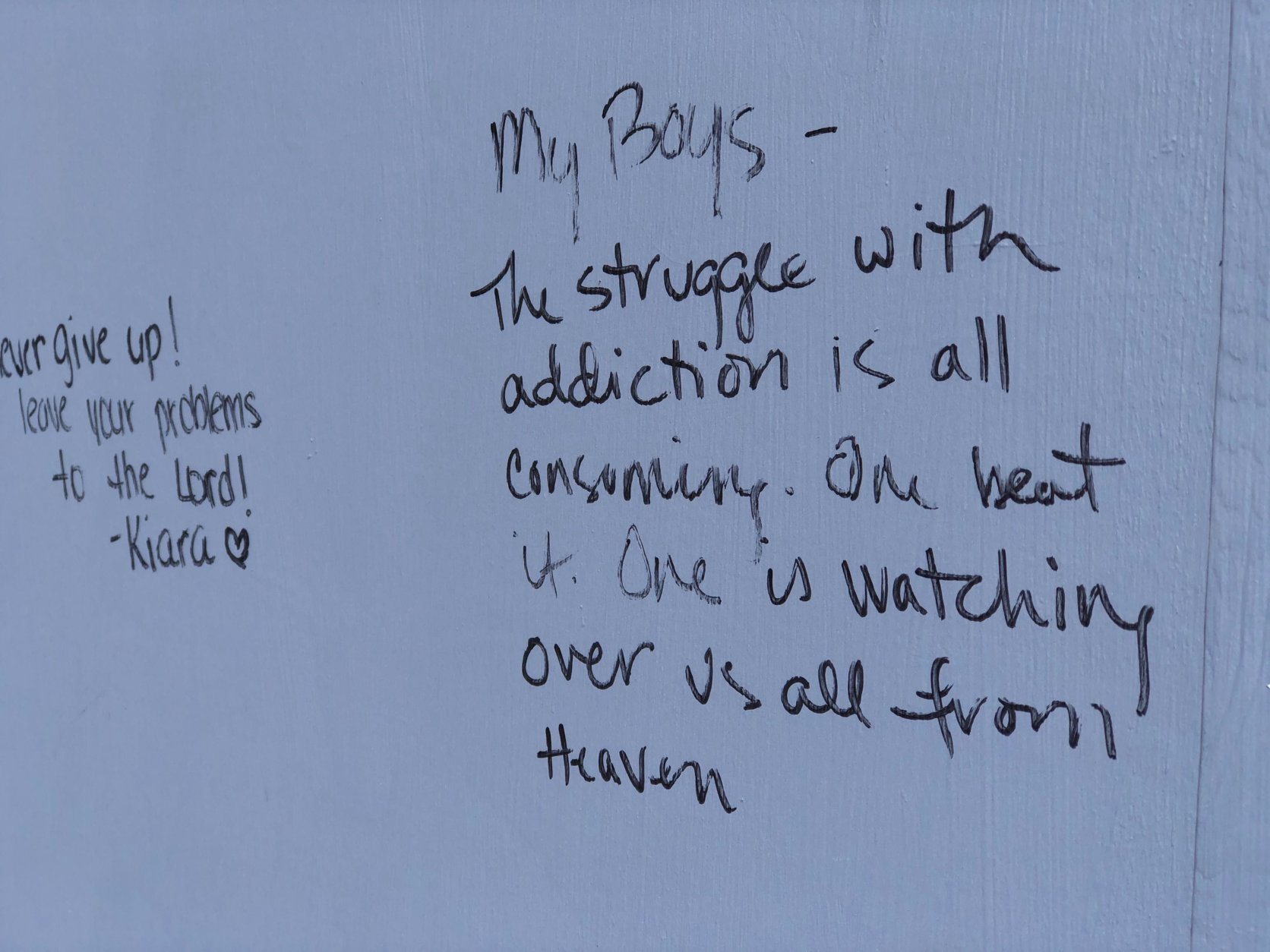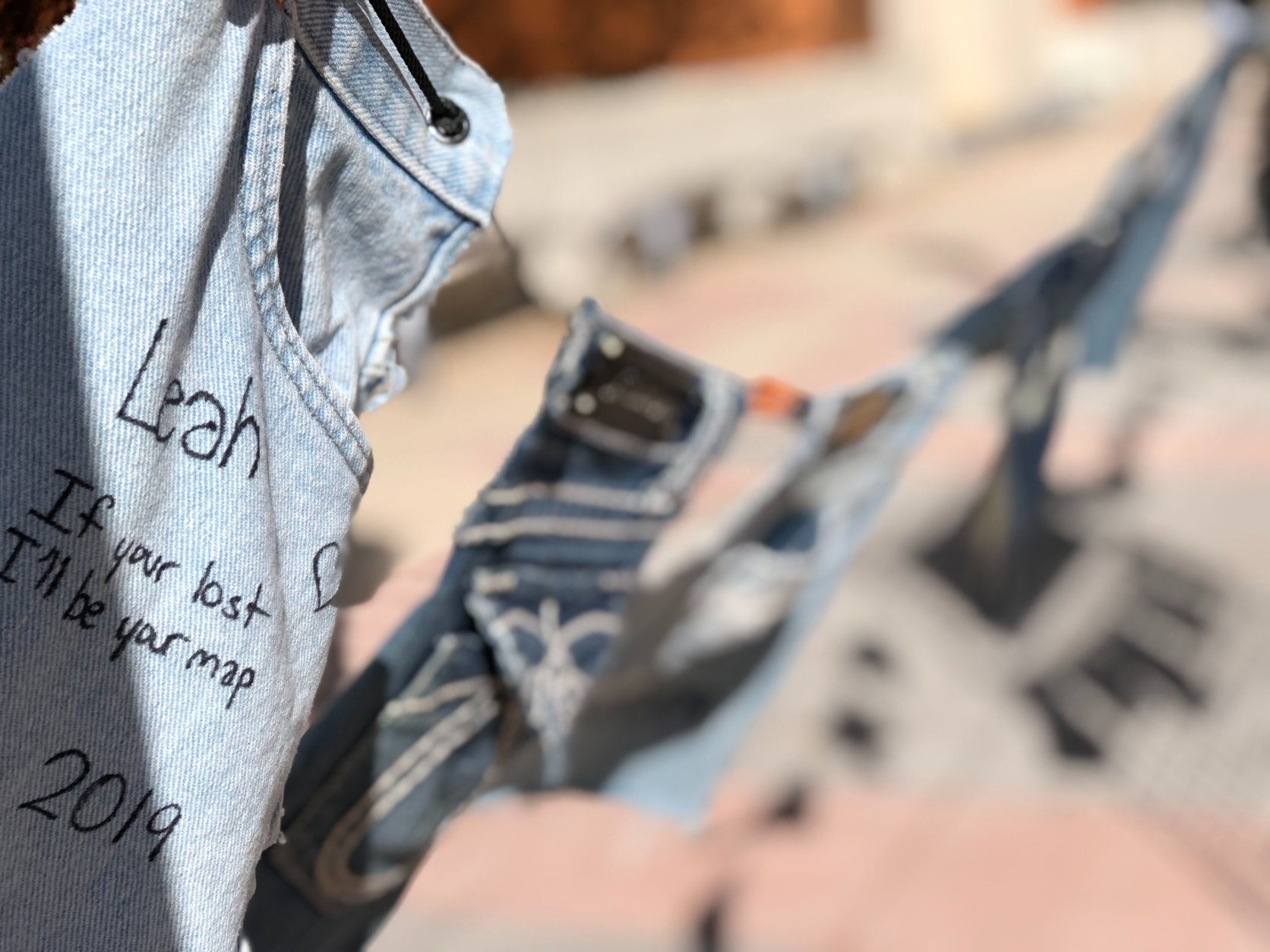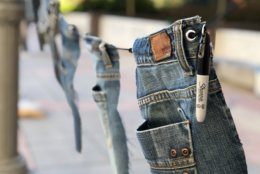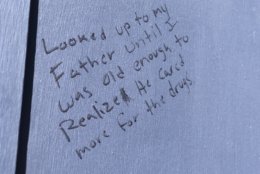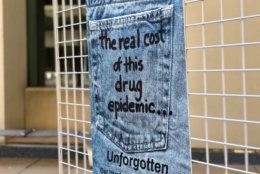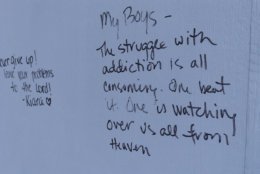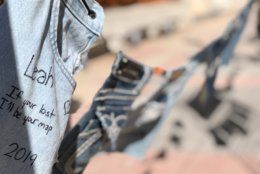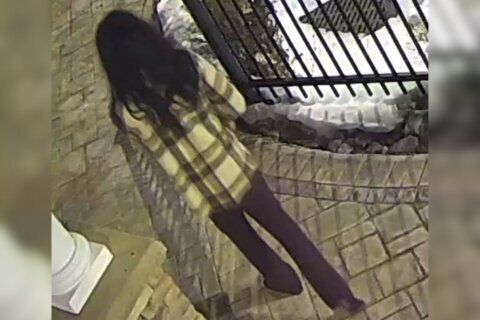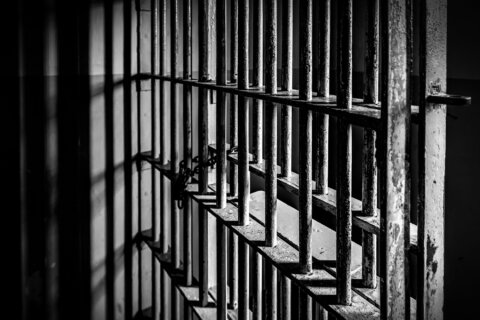If you think you spotted pairs of jeans dangling from a clothesline as you drove by the Montgomery County Executive Office Building in downtown Rockville, Maryland, you’re correct.
But it’s not laundry. It’s part of an art installation dealing with opioid addiction.
Sheila Berman and Suzanne Firstenberg are two artists who worked on the installation called “Unforgotten.”
A closer look shows that there are sections of bluejeans, each with the pocket still intact, hanging from the line that stretches across the plaza between the county office building and the Montgomery County Circuit Courthouse.
There are also indelible markers hanging from the line. Berman said the markers are there so that people can put the name of a loved one on the jeans. Or they can scribble a note to put in the pocket of the jeans.
Berman, a fiber artist, said using bluejeans for the installation was deliberate. Jeans, she said, “are universal; we all have them.” Also, she noted, the colors range from midnight blue to the pale blue of acid-washed jeans. “It could almost put you in mind of skin tones of human beings,” she said.
One of the aims of the project “was to offer a space to grieve and come together,” Berman said.
The installation has already been on display at the Bethesda Metro, and Berman took time to see how people reacted to the artwork.
Once they understood they could write on the jeans, people were quite open with the messages they wrote. “I was able to sit and watch, and sometimes I would see people adding to them and then talking to others about who they lost,” she said.
Because of the stigma attached to overdose deaths, “A lot of people grieve in silence,” Berman said.
While many artists would not want their work copied, Berman and Firstenberg hope that people around the country will imitate the display.
“Anybody could do this. Everybody can collect jeans. Out of every pair you get four panels” Berman said.
There’s a second part to the “Unforgotten” artwork in the plaza.
Photos of pairs of eyes peek out from under the water of the fountains that are a feature of the plaza. An information panel installed near the fountain explains how Firstenberg traveled across the country and met hundreds of people suffering from opioid addiction.
“Addiction is like drowning,” it said on the panel. “How can we walk past without helping?”
Montgomery County’s created a website to serve as a one-stop information hub for questions about addiction and where to get help.
